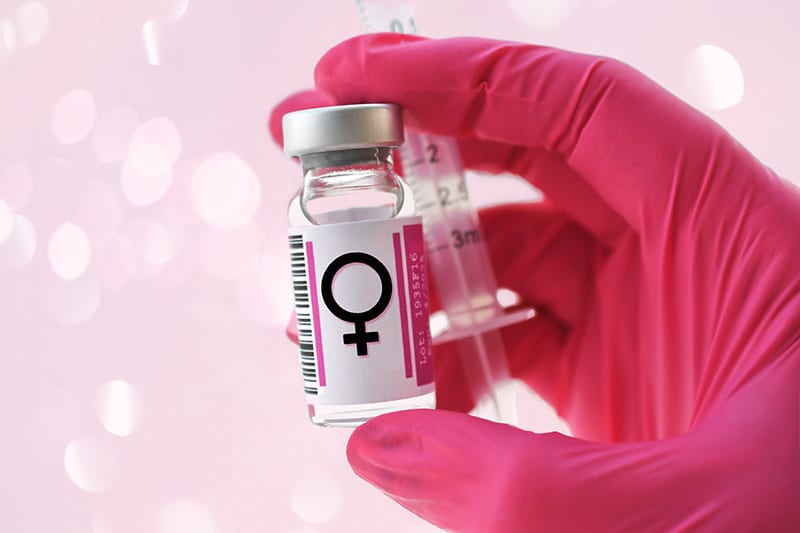Female Hormone Replacement (FHT)
Female hormone therapy (FHT) is one of the approved treatments for relief of menopausal symptoms. Despite this approval, lower doses of estrogen have been used historically for FHT. Targeted menopausal symptoms due to lower estrogen levels include symptoms such as: hot flashes, sleep disturbances, and vaginal dryness. FHT is also approved for prevention of osteoporosis.
There are three benchmark stages of natural menopause:
- Perimenopause: The time between the start of symptoms (erratic periods) to 1 year after the final menstrual period.
- Menopause: Confirmed at 1 year after the final menstrual period.
- Post menopause: All the years post menopause

Primary Indications for FHT
- Hot flashes
- Night sweats
- Vaginal dryness
- Prevention of osteoporosis
Ways to Administer FHT
- Systemically: Oral tablet, patch, gel, spray, or injection,
- Local: Cream, ring, or tablet for vaginal symptoms.
Types of FHT
- Estrogen only (ET): Estrogen is the hormone that provides the most menopausal symptom relief
- Estrogen plus progesterone (EPT): Progesterone is added to ET to protect woman with a uterus against uterine and endometrial cancer from estrogen alone.
- Testosterone: Given to women who have reduced libido, but can also be important for increasing bone density, muscle mass, improvement in cognitive function, mood and energy.
Current Prescribing Practice

FHT is started at the lowest effective dose for the shortest period of time consistent with each client’s individual goals. The benefit-risk ratio is favorable for women who initiate FHT as close to menopause as possible. Starting FHT post-menopausal becomes riskier with advancing age. We will discuss in detail information related to dating of each client’s stage of menopause during our intake process as this is crucial to assist your providers in developing your treatment plan.
At Recover Restore Revive we individualize hormone replacement for our patients by considering our client’s medical and surgical history as well as future goals. Here at Recover Restore Revive we are happy to discuss all the FHT treatment options as well as benefits and risks associated with each for a collaborative approach to your treatment plan. Open discussion of indications as well as off-label usage is common in multiple modalities throughout our practice.
Benefits
Hundreds of clinical studies have provided evidence that systemic HT (estrogen with or without progestogen and testosterone) effectively helps such conditions as hot flashes, vaginal dryness, night sweats, and bone loss. Improvement in these menopausal symptoms lead to these overall benefits:
- Improved sleep
- Improved sexual relations
- Improved quality of life
Numerous studies have demonstrated that adding testosterone to FHT can improve sexual function and overall wellbeing during menopause. In postmenopausal women, testosterone supplementation improved several domains of sexual response, including sexual desire, pleasure, arousal, orgasm and self-image. Testosterone has also been shown to have additional benefits including improvement or urogenital, psychological and somatic symptoms, increase bone density and enhancement of cognitive performance when combined with estrogen as part of FHT. Many women report that when taking testosterone, they had improvement in mood, concentration, motivation and energy levels.

Risks

In order to minimize serious health risks, FHT is recommended at the lowest effective dose for the shortest period of time.
Most of the risk of breast cancer is associated with EPT. Both ET and EPT have been associated with stroke and an increase in blood clots in the veins.
Women who have a uterus, progesterone must be prescribed along with estrogen to protect against uterine cancer.
Additional utilization of testosterone therapy comes with its own set of risks associated with increased androgen production. Please talk with your provider here at Recover Restore Revive for individualized risk discussions based on your type of FHT and specific dosing.
